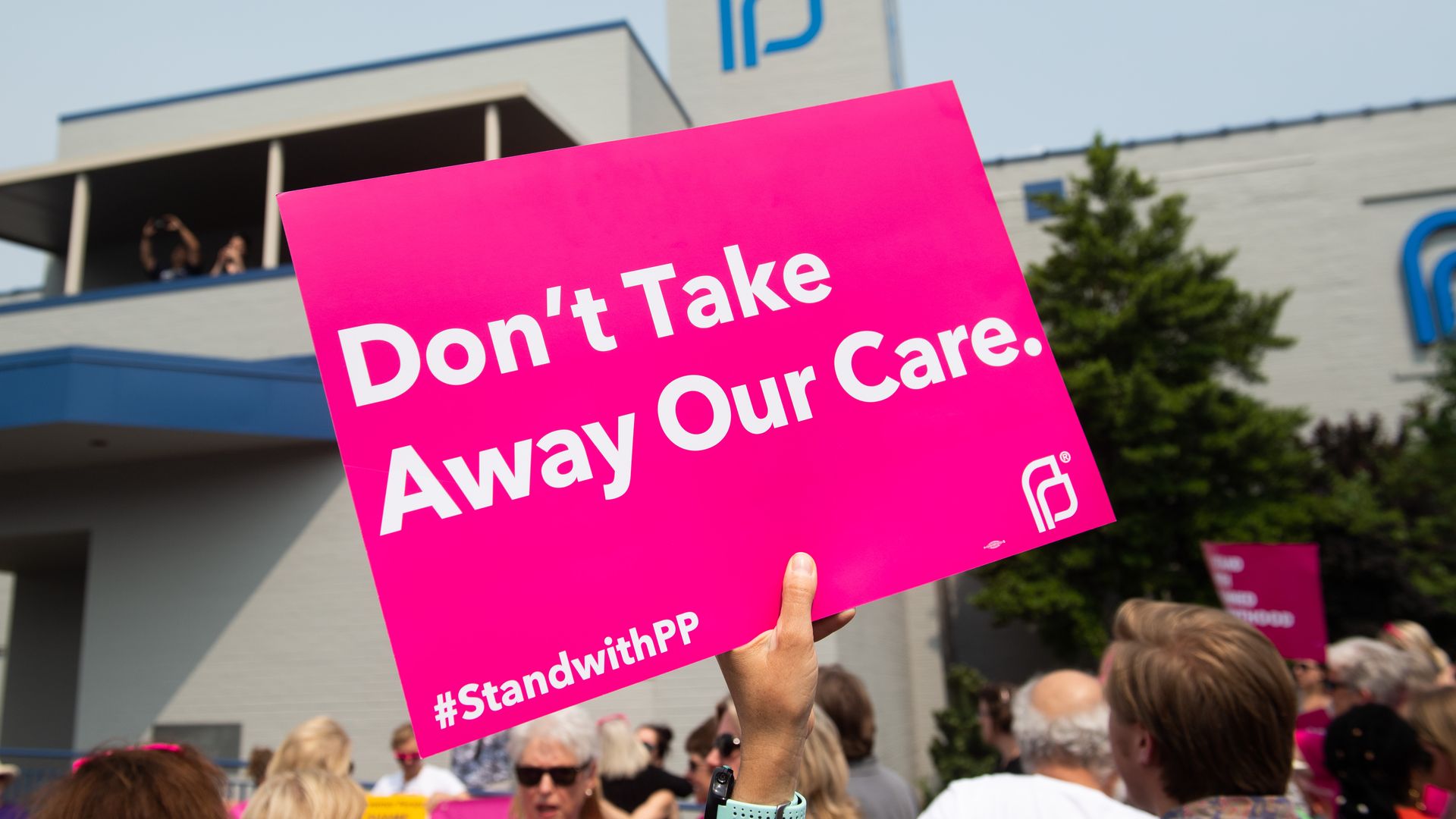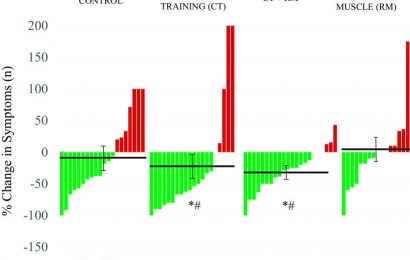
Abortion rights supporters and staff of Planned Parenthood hold a rally outside the Planned Parenthood Reproductive Health Services Center in St. Louis, Missouri in 2019. Photo: Saul Loeb/AFP via Getty Images
Almost half of OB-GYN medical students will not receive any abortion training if the U.S. Supreme Court overturns Roe v. Wade this summer, according to a new study from the University of California, San Francisco.
Driving the news: The court is currently considering a challenge to a 15-week abortion ban in Mississippi. A ruling in the case could jeopardize Roe's survival, or at least narrow its precedent.
- Red states across the U.S. are passing and enacting restrictive abortion laws in anticipation of the court's ruling, even with federal abortion protections still in place.
Zoom in: On Thursday, Oklahoma passed a law that aims to ban all abortions in the state. It would take effect immediately after it is signed into law.
- That would not only would it become the most restrictive abortion law in the U.S., but it would make Oklahoma the first state with a total ban in place.
- Neither of Oklahoma's two medical schools offer abortion training, AP reports.
Details: Researchers found that 44.8% of the 286 accredited obstetrics and gynecology residency programs are in states that are "certain or likely" to ban abortions in the absence of Roe.
- "Therefore, of 6,007 current obstetric and gynecology residents, 2,638 (43.9%) are certain or likely to lack access to in-state abortion training," the UCSF study states.
- By comparison, in 2020, 92% of OB-GYN residents reported having access to some sort of abortion training.
Context: Abortion training is "a component of obstetrics and gynecology residency required for accreditation," per the researchers.
The big picture: Abortion training is already scarce in the U.S.
- A 2020 study from Stanford University found that half of medical schools in the U.S. include no formal training or offer a single lecture on abortion-related topics.
What they're saying: "The researchers suggest that clinical educators arrange out-of-state travel rotations, patient-centered early pregnancy loss training, and abortion simulation curricula to prepare for the dramatic decline in access to abortion training if Roe v. Wade is overturned," a press release for the study says.
Yes, but: Researchers point out that travel rotations may not be feasible for the nearly half of all U.S. OB-GYN residents, so educators might need to explore "robust formalized miscarriage training, simulation, or remote learning as options for mitigating the lack of abortion training."
Go deeper:
- Red states race to enact new abortion restrictions
- What abortion access would look like if Roe v. Wade is overturned
Source: Read Full Article


